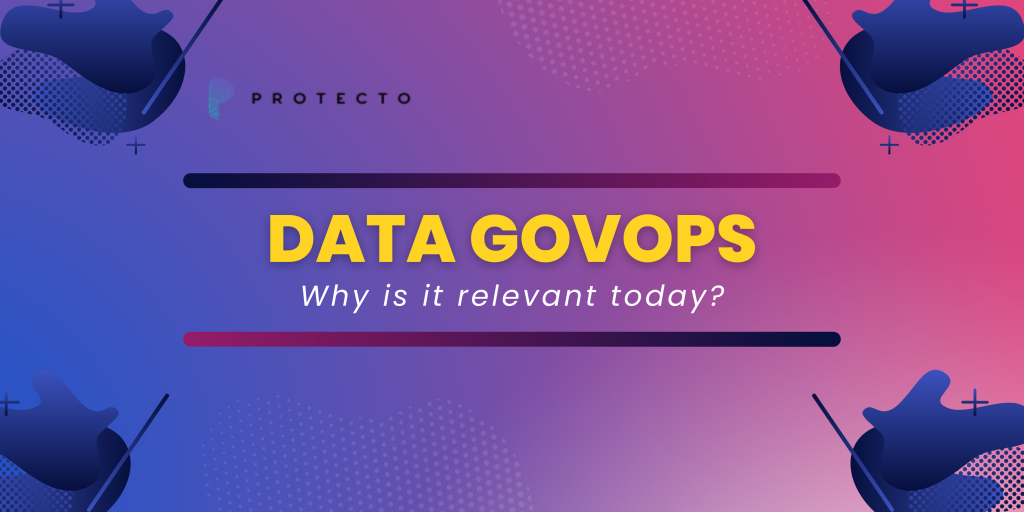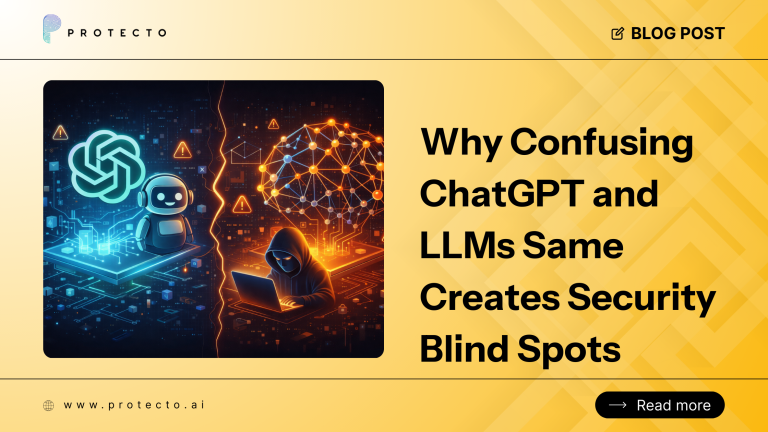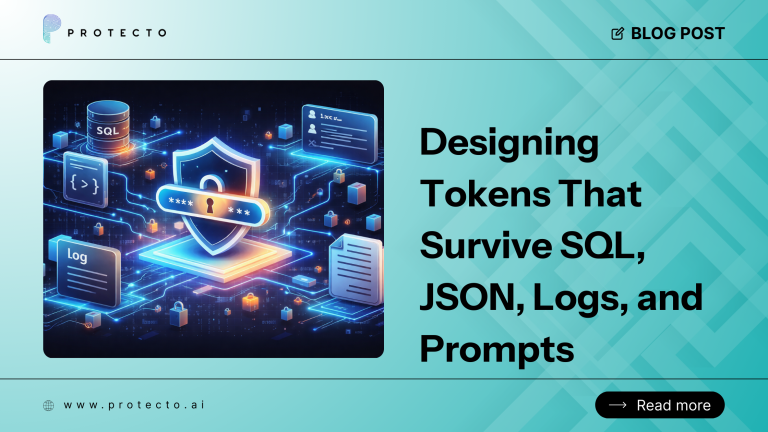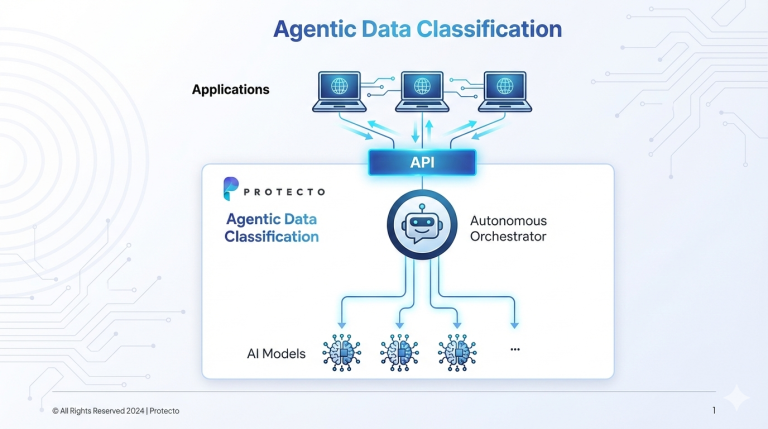DataGovOps refers to the practice of integrating data governance principles and practices into DevOps processes. It involves incorporating data management, data quality, data privacy, and data security considerations into the entire data lifecycle, from development to deployment and operations. DataGovOps aims to ensure that data-related requirements, compliance, and best practices are effectively addressed throughout the DevOps pipeline.
By implementing DataGovOps, organizations can streamline data operations, enhance data quality, and facilitate collaboration between data teams and development teams. This approach helps in maintaining data integrity, improving data governance, and ensuring that data-driven applications and systems are developed and operated in a secure and compliant manner. It aligns data management with agile development methodologies, enabling faster and more reliable delivery of data-driven solutions while mitigating risks associated with data handling and privacy.
DataGovOps: Why Is It Relevant Today?
DataGovOps is relevant today because it helps organizations establish robust data governance practices, ensure data privacy and security, comply with regulations, make better decisions based on reliable data, foster collaboration, and drive business agility in a data-driven environment.
- Increasing Data Volume and Complexity: Organizations are dealing with vast amounts of data generated from various sources. DataGovOps helps manage the complexity and scale of data by implementing governance practices to ensure data accuracy, reliability, and consistency.
- Data Privacy and Security: With data breaches and privacy concerns becoming more prevalent, organizations need to prioritize data privacy and security. DataGovOps helps embed privacy and security measures into the DevOps process, ensuring that data is protected throughout its lifecycle and compliant with data protection regulations.
- Regulatory Compliance: Data governance has become critical due to the implementation of data protection regulations such as GDPR, CCPA, and others. DataGovOps enables organizations to incorporate compliance requirements into their development and operations practices, reducing the risk of non-compliance and potential penalties.
- Data-driven Decision-making: Data-driven insights drive business success. DataGovOps ensures that data used for decision-making is of high quality, reliable, and governed effectively. It promotes data standardization, validation, and traceability, enabling organizations to make informed decisions based on accurate and trustworthy data.
- Collaboration and Efficiency: DataGovOps bridges the gap between data teams and development teams, fostering collaboration and streamlining processes. It encourages cross-functional collaboration and knowledge sharing, leading to more efficient data-driven development, testing, and deployment practices.
- Business Agility: DataGovOps supports agile and iterative development approaches, allowing organizations to quickly adapt to changing business needs and market dynamics. It ensures that data-related considerations are integrated into the development and deployment processes, enabling organizations to respond faster to emerging opportunities.
The need for DataGovOps arises from the increasing importance of data governance and the integration of data-related considerations into the DevOps process. Overall, DataGovOps ensures that data is managed, governed, and secured throughout the DevOps lifecycle, enabling organizations to make informed decisions, improve operational efficiency, and maintain data integrity and compliance.
Interesting Read: 10 Data Governance Best Practices for Every Organization
Understanding Data Governance Automation
Data governance automation refers to the use of technology and processes to streamline and simplify the management of data governance activities within an organization. It involves implementing automated tools and workflows to enforce data policies, ensure data quality, and facilitate compliance with regulatory requirements.
The primary goal of data governance automation is to reduce manual effort, improve efficiency, and enhance the accuracy and reliability of data governance processes. It helps organizations overcome the challenges associated with the ever-increasing volume, velocity, and variety of data. By automating repetitive tasks and implementing consistent data management practices, data governance automation enables organizations to gain better control over their data assets and make informed decisions based on trustworthy data.
Benefits of data governance automation include increased efficiency, reduced operational costs, improved data quality and integrity, enhanced decision-making, and better regulatory compliance. It enables organizations to establish a robust data governance framework that supports data-driven initiatives, fosters data collaboration, and promotes data-driven culture throughout the organization.
Implementing Data Governance Automation
It’s important to note, however, that while automation brings numerous advantages, it should be implemented thoughtfully and in conjunction with appropriate governance policies and human oversight. A balance between automation and human involvement is essential to ensure the effectiveness and ethical use of data within an organization.
Here is a summary of the key aspects involved in implementing data governance automation:
- Assessment and planning:
The first step is to assess the existing data governance processes and identify areas that can be automated. This involves understanding the organization’s data landscape, identifying critical data assets, and evaluating the current governance practices and challenges. - Data quality management:
Automated data quality tools can help in profiling, cleansing, and validating data, ensuring its accuracy and consistency. These tools can automatically detect and resolve issues such as missing values, duplicates, and inconsistencies, saving time and effort compared to manual processes.
- Data security and privacy:
Automation plays a crucial role in enforcing data security and privacy policies. It can involve automating access controls, encryption, and anonymization techniques to protect sensitive data. Additionally, automated data masking and de-identification techniques can help in ensuring compliance with data privacy regulations. - Compliance and regulatory reporting:
Automation can streamline the process of compliance management by automatically monitoring data usage, generating audit trails, and facilitating regulatory reporting. This helps organizations demonstrate adherence to relevant data protection and governance regulations, such as GDPR or CCPA.
Also read: Seven reasons why you shouldn’t ignore DataGovOps
How Protecto Can Help You Streamline DataGovOps
The idea that the sole focus of data governance is to reduce risk and ensure compliance is no longer viable, as this can impede creativity and innovation. DataGovOps offers businesses the option of safe data usage via automation, resulting in improved data governance. It also frees up data teams, as they no longer have to waste time on repetitive manual tasks.
Integrating data masking and tokenization techniques within DataGovOps practices can enhance data privacy, security, and compliance. These techniques enable organizations to streamline development and testing processes while ensuring that sensitive data remains protected throughout the data lifecycle. By implementing these measures, organizations can maintain the trustworthiness of their data and minimize the risk of data breaches or regulatory violations.
Protecto’s intelligent data tokenization is designed to preserve the functionality of the data, which means that companies can still streamline DataGovOps and use the tokenized data. If you want to witness how effortless it is to implement data access control with Protecto, try Protecto for FREE today by requesting a trial.
Frequently asked questions on DataGovOps
How does DataGovOps differ from traditional data governance?
Traditional data governance focuses on establishing data policies and rules, whereas DataGovOps emphasizes continuous integration and delivery of data governance practices in the agile DevOps environment.
What are the key benefits of adopting DataGovOps?
Adopting DataGovOps enhances collaboration between data governance and development teams, accelerates data projects, improves data quality, ensures regulatory compliance, and fosters a culture of data-driven decision-making.
How can DataGovOps support data governance in a dynamic and fast-paced development environment?
DataGovOps automates data governance tasks and ensures that data quality and compliance checks are performed continuously, enabling rapid development without compromising on data security and governance.
What are some best practices for successful DataGovOps implementation?
Best practices include fostering a data-centric culture, establishing clear data governance policies, automating data quality checks, empowering data stewards, and integrating data governance with DevOps pipelines.




